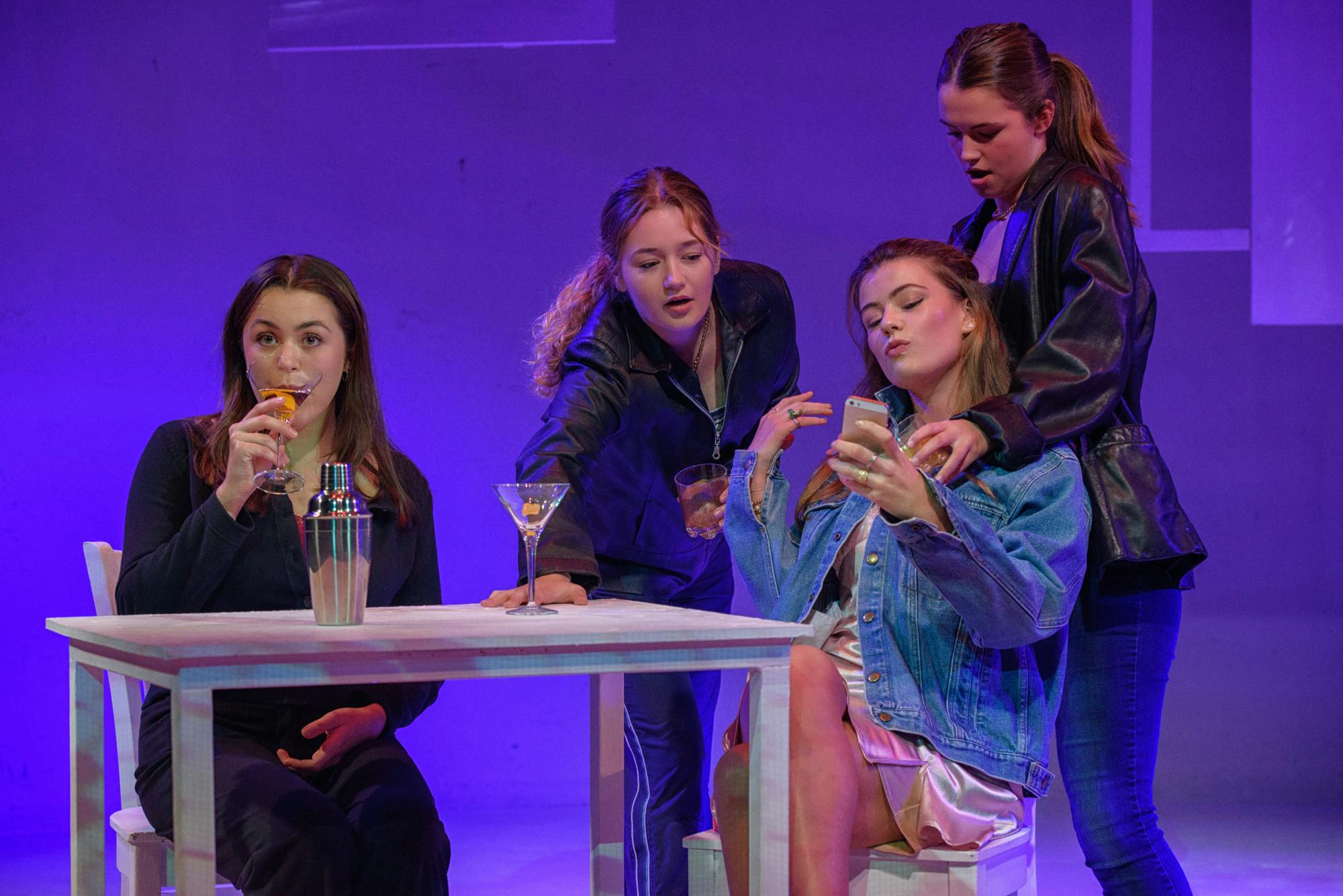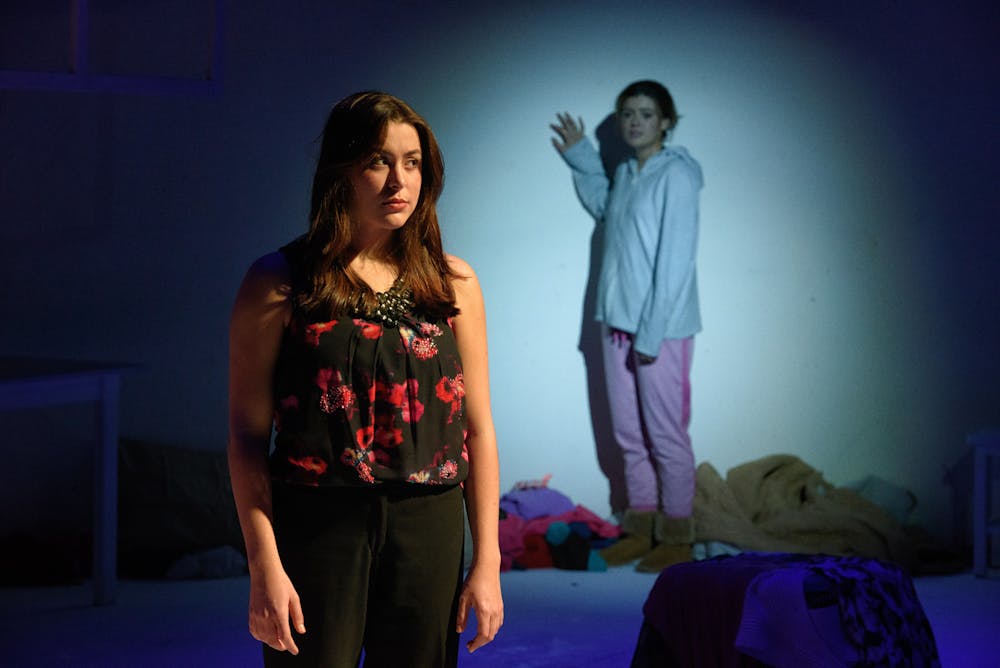In a typical Greek tragedy, there is a moment when the story’s heroic figure faces disaster and in the same moment intimately connects with the audience. The first of two faculty shows this fall, “Greek Tragedy,” delivers a contemporary, 2010s-inspired take on this premise.
Associate Professor of Theater Michole Biancosino directed a show that explored a typical Greek tragedy’s theme of the fraught relationship between mortals and gods and, in this play more specifically, the relationship between Instagram users and internet fame. The production showcased the attractions and dangers of constructing identities online, and audiences were called to question their own relationships to the modern digital world.
The play follows best friends Anna, a popular blogger-turned-influencer (Aiden Amster ’23.5), and Jennifer, an aspiring writer trying to make ends meet (Bri Beach ’23.5). As Anna’s fame grows, she begins to make decisions that put her friendship with Jennifer at risk. Jennifer, who once questioned the dangers of internet culture, becomes Anna’s ghostwriter, finding herself in close proximity to the superficiality she once questioned.
Jennifer acts as the audience’s lens into this new world, metatheatrically shaping the story as it goes along by addressing spectators directly. The characters are inspired by the story of Caroline Calloway, a notorious internet celebrity, and Calloway’s former ghostwriter, Natalie Beach. The story of Beach and Calloway culminated when Beach wrote a viral article in 2019 describing her tumultuous friendship with Calloway and the chaos that ensued.
From the moment theater-goers entered Wright Memorial Theatre, the show’s production design dazzled. Flutists dressed in togas and gilded ivy crowns welcomed a full house to their seats, which were on the stage itself, hammering home the play’s unusual relationship with the idea of “audience.” Chairs were arranged in a horseshoe shape resembling a theatron typical of shows in fifth century B.C. Greece.
The show opened with a prologue delivered next to a ghost light in reference to themes of ghostwriting, the ghosts of tradition haunting the play’s format, and the literal ghost who plays the role of Anna. “Greek Tragedy” went on to present episodes narrated by the show’s protagonists and enriched by a chorus, as is custom in the structure of traditional Greek tragedies.
Playwright Lia Romeo’s script is concerned with themes of love, loss and pride, but especially historiography: who gets to narrate what and how. Anna often interrupts Jennifer’s narration to protest that her description is not how something happened, how something was said or what was worn. Characters break the fourth wall often, sometimes comedically and sometimes with a startling sincerity that jolts the audience. In an age where the importance of self-presentation is inescapable on and offline, it’s no wonder the script constantly calls on its characters to consider how their stories will be told.
In the director’s note in the playbill, Biancosino offers an insight into what drew her to the play.
“It’s the metatheatrical elements of the script that most appealed to me… There is a long history, indeed around 2000 years, of playwrights calling attention to the methods of theatre within a piece of theatre, of asking an audience to consider their relationship to the work as they are watching,” Biancosino wrote.
Amster and Beach delivered epic performances, and there was hardly a moment without one of them on stage. Amster was able to capture the magnetic, multidimensional flavor of a larger-than-life figure, both wildly successful and spiraling out of control. Beach commanded the stage as the perceptive best friend who learns to step into a world of stylish personal branding. These actors are undoubtedly at the top of their game in their last semesters at Middlebury — their stamina and ability to turn otherwise lackluster lines into compelling conversation was nothing short of impressive.
“Greek Tragedy” is a rare case of a faculty show being centered around only two characters. Despite this setup of two talented actors delivering the lion’s share of the sproduction’s thematic elements, it was the lighting, sound and chorus that gave the show a unique, charming flavor.
Maggie Blake ’24 performed as a talent agent and member of the chorus.
“The show was a relief to see come to life —this was a substantial group effort that was so gratifying to be a part of,” Blake said.
“Greek Tragedy” was no small feat and was a commendable accomplishment of acting, directing and design alike that managed to capture the intersection between technology and identity while honoring an ancient genre.

Catherine Goodrich '24 (she/her) is a Senior Arts and Culture Editor.
Catherine previously served as an Arts and Culture editor and Staff Writer. Catherine is an English and Film double major hailing from Birmingham, Alabama. She is the prose editor for the Blackbird Literary Arts journal and works concessions at the Middlebury Marquis where she has developed a love for trivia and making nachos.




